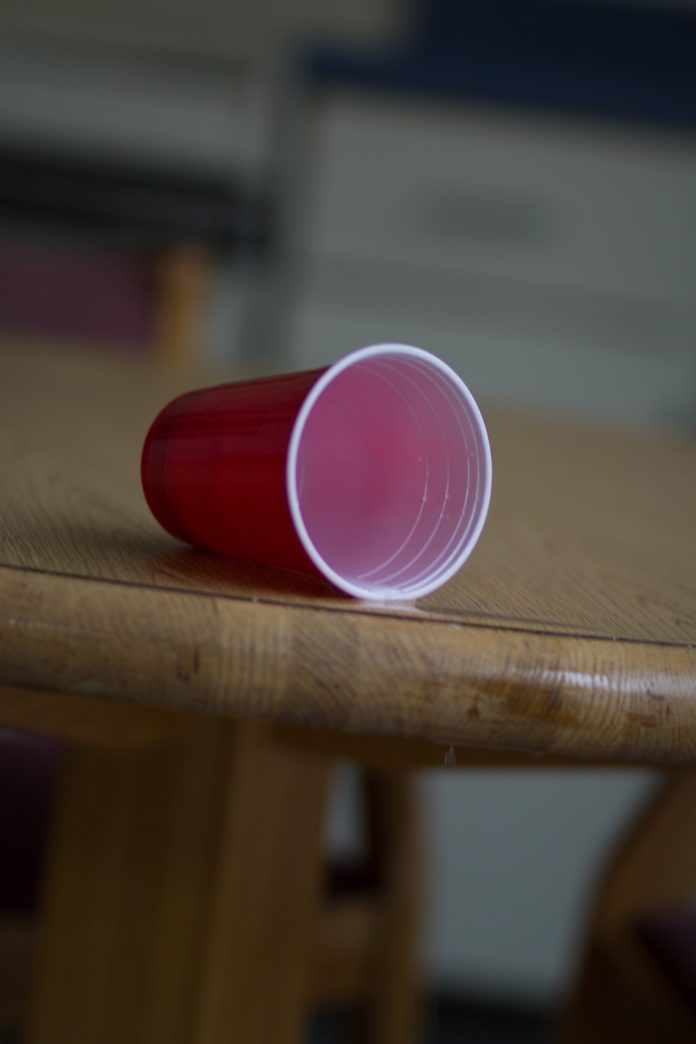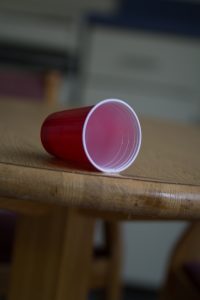
 There was a total of 27 hospitalizations due to overconsumption during the fall semester of 2017. This number was the highest recorded number of hospitalizations since 2015.
There was a total of 27 hospitalizations due to overconsumption during the fall semester of 2017. This number was the highest recorded number of hospitalizations since 2015.
According to the January 2017 Mid-Year Update, 13 of the 27 hospitalized students were first-years and the other 14 were upperclassmen. The average BAC of those hospitalized was a .24.
Of those hospitalizations, 10 occurred during events involving Greek life: nine at a fraternity event and one at a sorority event. “Fraternity presidents, sorority presidents, IFC and Panhellenic are all working with the Alcohol Office to create a positive change,” Elizabeth Getz, alcohol initiatives intern, said. “Yes, it [Greek Life] is a part of it [drinking culture], but it’s going to be a part of everything we do on campus.”
The update also highlights that none of the hospitalizations took place on weekends where security was required at events with alcohol. However, security was only required during two major weekends: Halloween and Monon.
The update also shows an increase in BAC levels. It was recorded that 35 students had BAC levels ranging from .15-.29. The number of students in this range has risen from the 31 reported in 2016.
Further, the number of BAC levels over .30 has also risen to seven since last year, which recorded only four students in this category during Fall 2016.
However, while the number of students with a BAC over .30 has risen since the previous year, the seven recorded students were cited early in the semester. There were no more citations in this category later in the Fall semester, Julia Sutherlin, assistant dean of student life and director of alcohol initiatives, said.
Getz said that the office’s goals right now are having students “drink less, set limits and call for help when needed.”
The DePauw Collaborative also focuses on environmental-level and individual-level actions, both of which are designed to control the level of binge drinking on campus. Environmental-level initiatives range from social norm campaigns, additional enforcement of the legal drinking age and increasing the number of morning classes.
On the individual level, the update encourages parent-based alcohol communication training, online alcohol education classes and an Alcohol Skills Training Program (ASTP).
The update also refers to the actions that the Office of Alcohol Initiatives has implemented to combat the rising number of hospitalizations and BAC levels. One of these initiatives is the Training and Intervention Procedures for Students (TIPS) program, defined on DePauw’s website as an “evidence-based program used across the country to provide college students with skills and resources to prevent intoxication and alcohol misuse on campus.” According to the update, 177 students have completed TIPS training since the spring 2017 semester.
Along with TIPS training, the update, under the DePauw Collaborative, promotes an intervention program in collaboration with Putnam County Community Corrections who offers a Prime for Life course which educates students on alcohol dependency and its effects on health and wellbeing.
Over Winter Term, there were only three alcohol related citations this year as opposed to 22 the previous year and only one hospitalization instead of two from the previous year. Considering a successful Winter Term, new initiatives and other positive trends, Sutherlin said, “I am hopeful.”


